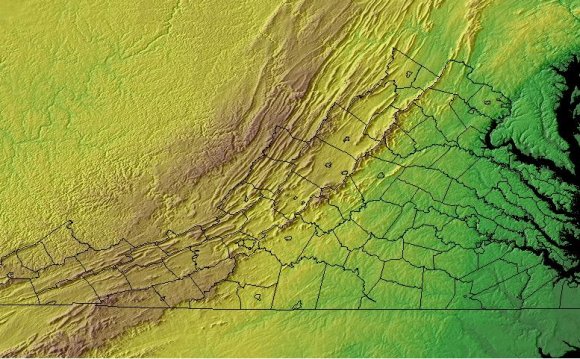
 Founded in 1819, regarding high bluffs above the Alabama River and 330 miles through the gulf, Montgomery, Alabama rapidly became the heart associated with the condition's plantation economy. By 1846 Montgomery was named Alabama's capital. In 1861, 9, 000 men and women lived in the town, considered the wealthiest because of its dimensions in the country. Montgomery was a transportation center, with steamboats planing a trip to mobile phone, stagecoaches traveling east, and a railroad operating northeast and southwest.
Founded in 1819, regarding high bluffs above the Alabama River and 330 miles through the gulf, Montgomery, Alabama rapidly became the heart associated with the condition's plantation economy. By 1846 Montgomery was named Alabama's capital. In 1861, 9, 000 men and women lived in the town, considered the wealthiest because of its dimensions in the country. Montgomery was a transportation center, with steamboats planing a trip to mobile phone, stagecoaches traveling east, and a railroad operating northeast and southwest.
On January 11, 1861, their state of Alabama seceded from Union. Lower than 30 days later on, during the early February, the Alabama secession convention invited delegates for the other seceded says to meet up in Montgomery to form the newest Confederate country. Delegates from six of seven seceded states (the Texans appeared belated) published a constitution when it comes to Confederate States of America in only four times; the following day they elected Jefferson Davis the Confederacy's president. In belated February, Davis took the oath of workplace while looking at the portico of the state capitol in Montgomery.
Montgomery's three resort hotels and numerous boarding houses had been crowded with government officials, politicians, troops, and newspapermen. It became a lot more of a metropolis than a quiet town, along with its roads crowded with carriages and ponies, and people on hunt for gossip, argument, and discussion. Every person admired the town's beauty.
But by might the summertime's humid temperature in addition to mosquitoes changed many individuals's minds about Montgomery. Then when the newly seceded Virginians supplied their particular condition and unique capital because the seat of the Confederacy, many were desperate to accept the provide. Mary Boykin Chesnut noted in her own diary that her husband, a former U.S. Senator, ended up being against the move. However, she remarked, "i do believe these uncomfortable resort hotels will move the Congress. Our statesmen love their particular simplicity."
Jefferson Davis was at first opposed, believing the administrative centre should live in the Deep Southern, where in fact the feelings for secession had been many fervent. But the Confederate Congress accepted the move and adjourned might 21, and scheduled to meet up in Richmond 8 weeks later. As Dr. James McPherson writes in Battle Cry of Freedom, "Virginia introduced crucial sources into Confederacy. The woman populace ended up being the South's biggest. Her manufacturing ability was almost since great as compared to the seven original Confederate says combined. The Tredegar Iron Works in Richmond had been really the only plant inside Southern effective at manufacturing heavy ordnance. Virginia's heritage through the generation of Washington, Jefferson, and Madison provided her immense status..."
The Confederacy's Many Permanent Capital:
Richmond, Virginia
Davis left Montgomery might 26 during the orgasm for the fervor after the fall of Fort Sumter and Lincoln's call for 75, 000 troops. Arriving in Richmond, the main city of Virginia, on May 29, he had been met by crowds on railway section and throngs across the streets toward Spotswood Hotel.
Richmond had been a much larger metropolis than Montgomery. One's heart regarding the South's industry, Richmond was also market city focusing on flour and slaves. It had been an attractive town found during the foot of the Great Falls of this James River and on seven hills. Its residents contrasted it to Rome. Between 1861 and 1865, its population swelled to 100, 000 and much more. Much to its residents' dismay, most new residents had been rowdy, noisy, and problematic. Besides, considering that the town had been the Confederate capital, it became the focus of Union attention. The risk of capture by Federal forces ended up being constant.
Richmond in the beginning thrived as the capital of Confederacy. After that starved. After that burned whenever, eventually, Robert E. Lee's causes had been obligated to retreat, leaving the town defenseless.
The Final Capital: Danville, Virginia
Located in south main Virginia, perhaps not far from the vermont border, Danville was the western terminus associated with the Richmond and Danville Railroad and an important Confederate offer base. Jefferson Davis along with his government traveled to Danville as Richmond fell to your Federal military. The town was the seat for the Confederate federal government for only eight times, April 3-10, 1865.
Danville's quartermaster, Major William T. Sutherlin, offered their home to Davis in addition to Confederate federal government. Davis occupied an upstairs bedroom, while the Confederate case met inside Sutherlin living area. Davis delivered his last proclamation to your Confederate nation through the house on April 4.
Davis thought that Danville was only a short-term location for the government. He thought that the Confederacy had "entered upon a period of challenge" where battle wouldn't be tied to the defense of urban centers, but taken to the mountains in guerrilla warfare.
But Lee's decimated army could not hold on. The pantry was sitting at dinner when word-of Lee's surrender at Appomattox achieved Danville. The Confederate federal government would have to go instantly. They'd initially intended to relocate to Lynchburg, but with no army operating in Virginia, the federal government would need to move south, toward Joseph Johnston's military. Davis nonetheless had hope the Confederacy could endure the current a number of catastrophes. He left Danville, Virginia for Greensboro, vermont, in the rain.
________________________________________
Sources:
• Chesnut, Mary Boykin. A Diary From Dixie. Edited by Ben Ames Williams. Harvard University Press, 1980.
• McPherson, James. Battle Cry of Freedom: The Civil War Era. Oxford University Press, 1988.
YOU MIGHT ALSO LIKE











